ABSTRACT View more...
In his talk, Ascending through Adversity, Steve Bell shares the lessons he learned while climbing and leading clients up the world’s highest mountains. Beginning with his teenage revelation that life isn’t supposed to be easy, he shows how resilience is in our DNA, and how adversity has given us the tools to adapt and survive.
Nature has given us endorphins. Naturally produced by our brains, they spur us to take risks, but society tells us to not take risks, to take the safe option. If human beings never took risks, we’d be extinct. Risk-taking helps us evolve and thrive. We learn from our failures and turn them into successes.
Risk, however, should never be reckless—as Steve learned the hard way on an Alpine north face. A ninety-metre fall taught Steve two things: that the hard choice is always the right choice; and that when you’re free of hope, you’re also free of fear.
Driven to take on increasingly challenging climbs, Steve met his nemesis on his first expedition to the Himalaya. Unable to see how they’d get down from the summit of Annapurna III, he let his friends down by refusing to go up with them, which ultimately forced them to turn back. He was devastated by his perceived cowardice and turned his attention to other things, including a stint with the British Antarctic Survey and a commission in the Royal Marines. But the mountains eventually called him back.
After leaving the Marines Steve had to reinvent himself. He set up a Himalayan trekking business but being dissatisfied with hiking trips to base camps he decided to take clients up the mountains themselves. He trained as a mountain guide and led teams up progressively higher peaks until there was only one higher mountain left: Everest. With sixteen summiteers, his 1993 expedition was the most successful commercial expedition of its time.
For Steve, Everest was life changing. It showed him how each day is the most important day of your life, that perspective changes everything, and that certainty is only one degree of three hundred and sixty degrees of possibility. What happened on Everest was nothing short of a miracle, but he’s been haunted ever since by the death of the angel who saved him.
Steve went on to complete the coveted Seven Summits, the highest mountain on each continent. The last of these was the North American summit, Denali in Alaska, on which he learned the importance of adjusting plans to suit the conditions, and—following the fatal consequences of failing to tell a climber to turn back—of giving voice to your convictions.
Forty years after Steve had let his friends down on Annapurna III, the climb received its first ascent. A photograph of the three triumphant climbers showed he was right to not go up, and that rather than cowardice, his gut-feeling had saved both his and his two friends’ lives.
FIn his final story, Steve reminds us to think of those closest to us, for whatever we do with our lives, the only thing we leave behind is the impression we make on others.
The presentation concludes with a rousing call to action: to face adversity without self-pity, embrace uncertainty, and take courage in our inborn ability to ascend.
ABSTRACT View more...
As the pest control industry navigates an era of rapid change, embracing technological innovation is no longer optional—it's essential. New technologies are not just improving how services are delivered—they are reshaping business models, enhancing service quality, and providing new insights through data. But how can businesses practically harness this innovation?
This panel brings together four industry experts, each representing a transformative technology:
- Smart Rodent System: Explore how sensor-equipped traps enable remote monitoring and automated responses in rodent management, enhancing efficiency in urban pest management.
- Productivity Software: Learn about digital platforms that streamline operations, from scheduling, reporting to compliance and invoicing, boosting overall service delivery while generating data to guide critical operational and business decisions.
- IoT-Powered Insect Light Traps: Understand how technology enhances insect monitoring, allowing for proactive and targeted pest control strategies.
Each panellist will provide a concise overview of their respective technology, highlighting practical applications, real-world impact, and tangible benefits for pest control businesses. The session will then transition into a moderated discussion, addressing critical questions such as:
- What are the challenges and solutions in adopting these technologies for small to medium-sized enterprises?
- How do these innovations solve the biggest challenge in pest control operations?
- What is the projected return on investment, and how can businesses measure success?
Attendees will have the opportunity to engage directly with the panellists during a Q&A segment, fostering a collaborative environment to discuss real-world challenges and solutions.
This session is a must-attend for pest control professionals seeking to stay ahead in a competitive market. Whether you're a business owner aiming to modernize your operations or a technician interested in the latest tools of the trade, this panel offers valuable insights into the future of pest management. Join us to explore how embracing technology can lead to improved efficiency, customer satisfaction, and business growth.
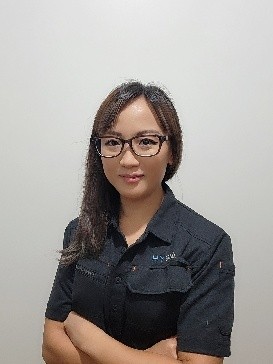
JO LYNN TEH (CHAIR) – DIRECTOR, HYSIA SINGAPORE
Jo Lynn Teh, BCE, is Director of HYSIA Singapore, an environmental health company specializing in pest management and food safety. She brings close to 20 years of experience and expertise to the pest management industry. Jo Lynn is a Board Certified Entomologist (BCE), a designation awarded by the Entomological Society of America, and holds a Bachelor of Science in Biotechnology and Master of Science in Environmental Management. She currently serves as President of the FAOPMA Executive Committee (2023–2024), co-Chair of the NPMA Global Pest Management Coalition, and Chair of the Singapore Pest Management Association (SPMA).
Jo Lynn is an advocate of integrated pest management and is passionate about promoting professionalism in the pest management industry. She has worked in various roles in public service and the private sector before setting up HYSIA in 2017. She is often invited to speak at regional conferences and workshops, and has represented Singapore in the development of ISO standards for pest management.
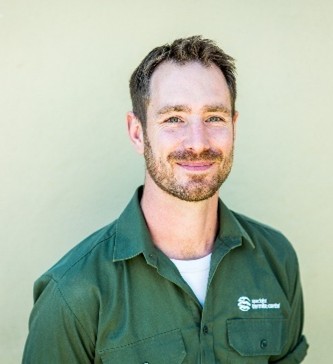
ROB BOSCHMA – OWNER, SPECIALIST TERMITE CONTROL
Rob Boschma owns and operates Specialist Termite Control - a winner of multiple awards including National Specialist of the Year and Victorian Pest Manager of the Year. He also works with the Australian Environmental Pest Association at both a State (Vice President) and National (State Delegate) level. Being a second-generation pest manager, Rob is passionate about the industry and its promotion. He has presented at numerous industry conferences on a range of topics, with a particular emphasis on Small Business and Termite Management. Rob aims to provide relevant, independent industry insights with a focus on real world situations.
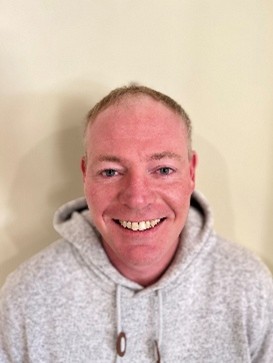
BEN DEWITT – DIRECTOR, FUMAX PTY LTD
As a 21-year-old, I started my Pest Professional Journey as a junior fumigator specialising in Soil Fumigation, Fumigation Equipment and the Fumigation of Import and Export Commodities. This role over a 20-year span has taught me that not all solutions are contained within a classroom or a textbook, but rather with real world experience, and an ability to find a solution from seemingly nothing from a different perspective than what is essentially the "Norm".
This has led me to the founding of my business in 2021 where we focus on the synergies of Fumigation and Pest control, which often go hand in hand.
Specializing in the management of Stored Product Pests, from the Source, to Processing and Storage of Commodities, FUMAX offers a different perspective on Pest Management that looks at the total flow path and adopts new technologies to help integrate into management of all pests.
Since the founding of the business, FUMAX has grown its capabilities and is now operating in all states of Australia with over 25 staff offering all of our services to even the most remote of customers.
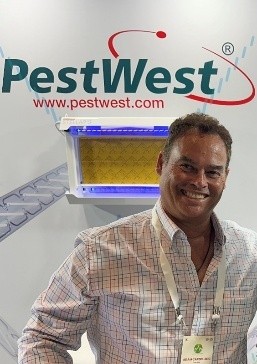
ADAM CAREW-REID – CEO, PESTWEST AUSTRALIA
Adam Carew‑Reid is the Chief Executive Officer at PestWest Australia, operating out of Perth, Western Australia. With responsibility for the team, he drives innovation in insect control technologies focused on unsurpassed customer service for both domestic and global markets. With over 15 years in the pest industry, Adam understands the importance of manufacturing high quality products that deliver the results essential to satisfy even the toughest requirements of customer requests.
10 years ago, Adam led the successful integration of Starkeys Products into the PestWest/Killgerm Group portfolio, ensuring the continuation of its manufacturing excellence in Perth and strengthening synergies across international pest control markets.
ABSTRACT View more...
This presentation explores the future of rodenticide use across Australasia, focusing on Australia’s evolving regulatory landscape, increasing rodent resistance, and the growing demand for sustainable pest control. It will cover upcoming changes to APVMA approvals, the impact of resistance on efficacy, and the role of integrated pest management. The session also highlights innovative developments from New Zealand’s Predator Free 2050 initiative, including species-specific toxins and advanced detection technologies, offering insights into how these tools could shape rodent control practices in Australia.
ABSTRACT View more...
Some pest managers like to specialise. This is obvious given the huge number of firms promoting themselves as "Termite Specialists". Others find a different niche, like Food Industry Pest Specialists or Bedbug Control, and so on. Then there are those who want to be all things, to all people. But whatever sector you fall into, if you do provide termite control services, you can expect to be challenged in various ways.
We've never had such an array of chemistries, formulations and products at our disposal to thwart the advances of our ravaging termite species, and the modern tools and equipment add to our complement of weapons in this battle. Inspection and detection technologies have also improved over the last 20 years or so but the termites keep coming and treatments sometimes fail.
The termite brain could never be compared to the incredible complexity and capability of the human brain, but termites do out-fox us and leave us wondering in despair and scratching our heads when we 'lose the battle' with them on a difficult site. Why? Could it be the dreaded 'Operator Error', or that our product of choice hasn't lived up to the hype?
In this presentation, Gary looks into various cohorts in the Aussie Termite Management Industry, being the Cowboys, the Robots, the Aliens and the Termite Specialists. We open the Pandora's Box of what best practice or even acceptable termite management practice should look like.
Gary also delves into real life case studies involving legal proceedings he has consulted on where termite treatments, inspections and customer care could have been handled better, much to the detriment of property owners and termite management professionals alike, after lengthy, costly and deeply distressing litigation has resulted.
We look into procedures and facets of termite management which for obscure or dubious reasons are sometimes overlooked, while others are maybe relied upon too much. Partial treatments is an example. Neglecting inspection and treatment of termite nests in trees and stumps is another.
This talk may at least prompt some to consider what they're doing with termite control, or indeed, what they're not doing. After all, there's usually a correct way and a not so correct way to do most things.
ABSTRACT View more...
Discover how IPM utilizes nature's own solutions to tackle pest problems in a sustainable and effective way. Explore the four main categories of IPM, including biological, cultural, mechanical, and chemical approaches, and learn how each plays a vital role in preventing and managing pest issues.
ABSTRACT View more...
Raja Mahendran, International Pest Business Consultant explores the challenges faced by the urban pest control industry and the need to embrace Pest Risk Management (PRM) as a modern profitable and sustainable alternative to Integrated Pest Management (IPM). PRM emphasises proactive prevention through exclusion techniques, maintaining high standards of hygiene, and implementing risk-based strategic placement of control measures.
PRM aims to significantly reduce pest populations, minimising the volume of pesticides and non-pesticide tools by strategic placement, while maximising the value of the pest management service to the client and caring for the environment.
How does PRM apply to mosquito control? Considering the growing threat from dengue mosquitoes coming close to the borders of Australia, two innovative technologies for mosquito control are presented. The gene powered Friendly Mosquito and Wolbachia, for sustainable dengue mosquito control.
By adopting PRM, pest control professionals can contribute to creating sustainable urban environments, enhancing public health, and ensuring the long-term success of their operations.
ABSTRACT View more...
Join us for an engaging panel session where three experienced pest managers will explore the technicians' training journey.
The discussion will begin with recruitment strategies, where panellists will share their experiences balancing the benefits of hiring licensed professionals versus training new entrants. They'll explore how practical skills and transferable experience are assessed, and how trial periods or pre-employment training can help identify the right candidates.
As the conversation progresses, the panel will dive into training and ongoing development. Speakers will discuss how to support technicians through tailored learning programs, mentorship, and digital tools, while ensuring consistency and alignment with industry standards. They'll also address the challenges of maintaining training quality and relevance over time.
Finally, the panel will highlight how continuous learning, career progression opportunities, and technician feedback contribute to long-term success, sharing real-world examples of how sustained training investment has improved service quality and operational efficiency.
Attendees will gain practical strategies for attracting talent, delivering impactful training, and fostering a culture of continuous improvement, making this session a must-attend for leaders committed to workforce excellence.
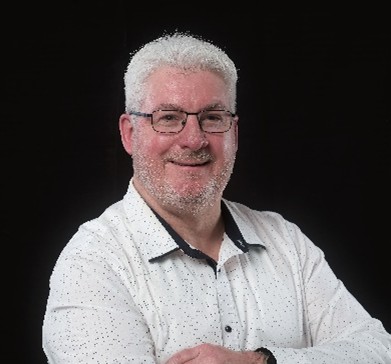
JOHN MURRAY – TRAINING MANAGER, FLICK ANTICIMEX RTO (PACIFIC REGION)
John began his career in pest control in 1996 with Amalgamated Pest Control (APC) in Lismore, NSW. After gaining hands-on experience as a field technician and mentoring new trainees, he went on to purchase and successfully operate the APC Ballina franchise. His passion for leadership and professional development led to his appointment as Head of APC’s Technical and Training Team in 2013.
Following the acquisition of APC by Flick Anticimex in 2016, John was appointed to lead the company’s National Technical Team and Registered Training Organisation (RTO). In his current role as Training Manager for the Pacific Region, he plays a key role in advancing Flick Anticimex’s commitment to excellence in pest management training, research, and innovation. He provides training, mentoring, and technical support to a network of approximately 800 technicians and subcontractors.
John is a long-standing contributor to the Australian Environmental Pest Managers Association (AEPMA), having served on both the Queensland Committee and the National Board. He currently holds the roles of AEPMA Vice President and National Board Member – Special Qualifications. John has contributed to multiple AEPMA Codes of Practice, represented the industry on external committees focused on training and development, and worked as part of the project team that successfully had pest control re-classified from Labourer to a Technician and Trade Worker occupation under the Occupation Standard Classification for Australia (OSCA).
In recognition of services to the Pest Management Industry, John was very honoured to receive the AEPMA QLD Wayne Naylor Memorial Award for Excellence at Pesticon 2024. He is passionate about all aspects of the pest management industry, and especially in the mentoring and training of the next generation of pest managers.
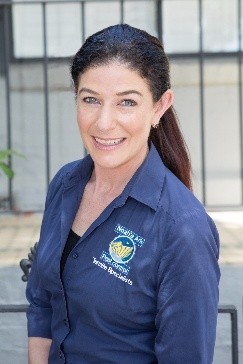
EMMA MENDELSOHN - CO-FOUNDER, NOAH’S ARK PEST CONTROL
Emma co-founded Noah’s Ark Pest Control in 2009 and today leads a team of dedicated pest specialists. Noah's Ark Pest Control have been honoured to win the prestigious State Pest Manager of the Year award and have been finalists of AEPMA Pest Manager of the Year.
Emma currently serves as a National Director and the State Chair of AEPMA having served as Vice Chair previously.
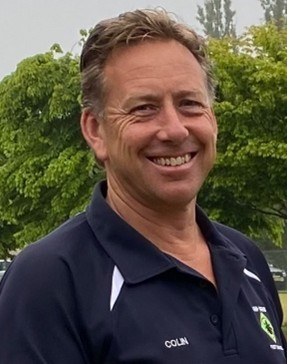
COLIN UREY – FOUNDER & DIRECTOR, DROP DEAD PEST CONTROL
Founder and Director of Drop Dead Pest Control established in 2008, one of the largest privately owned pest control businesses in NSW. Colin’s passion is developing a team of professional pest professionals that are results driven and provide an awesome customer service experience. Colin is a solid tradie at heart with experience in many trades but also has a proven track record in the corporate world of sales and business management
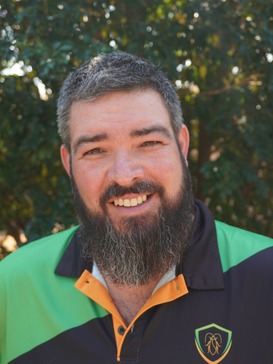
ANDREW CRITCHLEY – FOUNDER & DIRECTOR, INSTINCT PEST MANAGEMENT
Andrew Critchley began his career in 2002 as a labourer, quickly discovering that crawling under houses in search of termites was far more exciting—and rewarding—than life working in a kitchen. That early curiosity about pests laid the foundation for a career that would span over two decades and take him across the country.
Over the years, Andrew built his expertise working with small and medium-sized pest control businesses. His skill and leadership eventually led him to a supervisory and management role with a large multinational company. In this position, he travelled nationally, auditing technicians and ensuring top-tier service delivery for major clients.
After a period as a subcontractor working with various branches in NSW, Andrew and his family made the move to Darwin—drawn by the challenge and adventure of pest control in the Top End. It was here that he saw a clear gap in the market for high-quality, reliable pest control services. That insight led to the launch of Instinct Pest Management, a company built on expertise, integrity, and a passion for problem-solving.
Noticing another underserved niche, Andrew also founded Darwin Possum Man, providing innovative and humane possum management solutions. His unique approach has not only earned trust from customers but also recognition from wildlife carers and government environmental agencies, proving that pest control and animal welfare can go hand in hand.
Despite his leadership roles, Andrew remains hands-on in the field, working alongside his two senior technicians and supported by a dedicated office team who keep the business running smoothly. His commitment to service, quality, and innovation continues to drive both businesses forward—largely through word-of-mouth and referrals from satisfied clients.
ABSTRACT View more...
For pest management businesses, growth often means simply adding more technicians and increasing customer volume. But scaling is about doing more with what you have and doing it more efficiently.
This panel will unpack what it really means to scale a pest control business, drawing on the real-world experiences of industry leaders who have successfully grown beyond the limits of linear expansion.
We'll explore the role of people, systems, processes, technology, and targeted investment in building a business that can handle greater volume and complexity, without a matching increase in cost or effort.
From workforce management tools to service delivery innovations, the discussion will offer practical insights on how to streamline operations, improve margins, and set your business up for long-term, sustainable success.
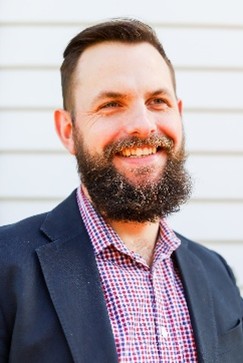
CHAIR – SAMUEL WOOD – DIRECTOR ASIA PACIFIC, BELL LABORATORIES
Samuel Wood is the Asia Pacific Director at Bell Laboratories, bringing 18 years of experience in the pest management industry across Australia and the United Kingdom. Having worked in both large and small pest control companies, Samuel offers a broad perspective on the challenges and opportunities businesses face at different stages of growth.
At Bell Laboratories, Samuel has led sustained growth across the Asia Pacific region, building strong relationships and driving market expansion. He enjoys sharing practical strategies and helping others explore ways to scale their businesses while staying agile and customer-focused.
As chair of Scaling Success, Samuel looks forward to leading an engaging discussion on how pest management companies can achieve lasting growth in a competitive market.
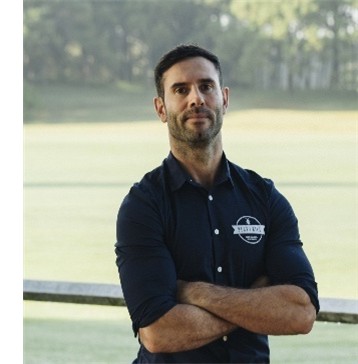
PHIL TAYLOR – CEO & CO OWNER, PEST2KILL
Phil Taylor is CEO and Co-Owner of Pest2Kill, one of Australia's fastest-growing pest control companies.
Pest2Kill was founded in 2015 by Julian Bracewell, with Phil joining in 2017. Since then, they’ve grown from a two-man operation to a team of almost 30, servicing thousands of residential and commercial clients across the Greater Sydney area.
Phil’s leadership is built on the belief that business growth should go hand-in-hand with personal growth. He’s passionate about creating a workplace where people genuinely enjoy coming to work — one built on a foundation of support, recognition, and ongoing development. Pest2Kill’s growth has been powered by its people-first philosophy — “it’s not about the pests, it’s about the people.”
Outside of work, Phil is a proud husband and father of three. In his spare time, you’ll often find him with his family on the beach or dragging himself around a football pitch, still chasing former sporting glories.
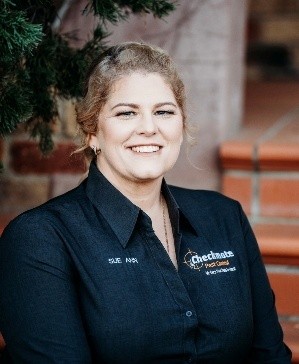
SUE-ANN TYSOE – CHECKMATE PEST CONTROL
Sue Ann Tysoe is passionate about building strong, community-focused businesses through strategy, creativity, and continuous learning. With 18 years of experience in construction administration and a Certificate III in Business, she brought a solid operational background when she joined Checkmate Pest Control full-time in 2019 - despite having no previous experience in the pest management industry.
Since then, Sue Ann has become a fully qualified termite and general pest technician and has taken the lead in shaping the business across all areas. From operations, systems to marketing, customer experience, and business development, she has built her knowledge from the ground up—driven by curiosity, resilience, and a hands-on approach.
She also contributes to the wider industry as a member of AEPMA’s Learning and Events Taskforce, reflecting her ongoing commitment to professional growth and raising industry standards. Sue Ann’s strength lies in her ability to blend practical skills with strategic thinking, helping Checkmate Pest Control stand out in a competitive field.
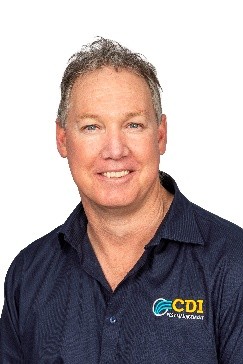
MARSHALL BLACKLOCK – CEO, CDI PEST MANAGEMENT
Marshall Blacklock is the Founder and CEO of CDI Pest Management, with over 28 years of experience in the pest control industry. Since establishing CDI in 2005, he has focused on delivering responsive, high-quality service backed by simple, scalable systems and a commitment to doing the ordinary exceptionally well.
A strong advocate for sustainability, Marshall champions Integrated Pest Management (IPM) and low-toxicity treatments, and has led initiatives like the Rapid Response Large Area Fire Ant Treatment. Under his leadership, CDI holds third-party accredited ISO 9001 and HACCP certifications, ensuring consistent quality and accountability.
Marshall is deeply engaged in the industry and community—mentoring other pest businesses, hosting local training events, and supporting not-for-profits. He leads the national Careers in Pest program with AEPMA and was named the 2024 Australian Pest Manager of the Year.

JAMES WALLACE – MANAGER OF AFFINITY BUSINESS, AVISO SPECIALTY
James Wallace has been in the general insurance industry for over 20 years and has specialised in pest management insurance since 2009. As the Manager for Affinity Business at Aviso Specialty, James brings deep expertise in the operational and regulatory risks faced by pest control businesses. His knowledge of insurance structures and client-focused protection strategies ensures that each solution is tailored to the evolving needs of the industry.
ABSTRACT View more...
Running a pest control business today means dealing with a lot of change—new technologies, changing customer expectations, staffing challenges, and rising costs. This panel session is designed specifically for small to medium businesses looking for real, practical strategies to stay strong and successful, no matter what comes your way.
We’ll break it down into four key areas: Your Team, Your Customers, Your Business Operations, and Your Finances.
- Teams – Hiring, Keeping and Supporting Good People
Finding and keeping good staff is one of the biggest challenges for pest businesses today. In this part of the session, we’ll share tips on how to attract the right people, keep them engaged, and create a workplace that supports growth and loyalty—even in a competitive market.
- Customers – Meeting Changing Expectations
Customers expect more than ever—faster service, clear communication, and environmentally friendly options. We’ll look at ways to keep your customers happy, build trust, and stand out from competitors by improving service and using simple digital tools.
- Management – Running a Smarter, More Flexible Business
Good management means being able to adapt quickly when things change. This section focuses on streamlining your daily operations, using technology to save time, and making sure your business can keep running smoothly, even in tough times.
- Financials – Keeping Your Business Profitable
With rising costs and economic uncertainty, it’s more important than ever to keep your finances in check. Our panel will share smart, easy-to-understand strategies for pricing your services, managing expenses, and making your business more financially secure for the future.
Why You Should Attend:
If you’re running or managing a pest control business, this session will give you down-to-earth ideas and tools you can put into action straight away. Learn from others in the industry, ask questions, and walk away with new ways to make your business stronger and more prepared for whatever comes next.
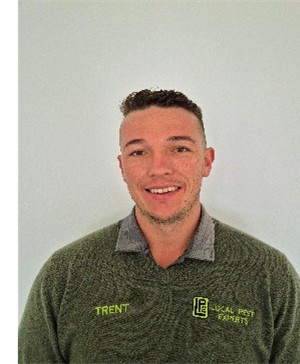
TRENT CHAPMAN – OWNER, LOCAL PEST EXPERTS
Trent is a second generation pestie with extensive experience in many facets of the industry. Officially starting his career in 2008 and beginning his role as the business manager in 2015, Trent says that being around a family business meant that his education in the challenge of business over the long term started well before either of these dates.
Trent’s career has included a role as a trainer and assessor with Rapid Training for 3 years, he's currently mid-way through a business degree, is passionate about the continued improvement of the pest management industry’s professional standard and is incredibly humbled to chair today’s session.
The family business started in 1998 and has grown to include a team of 17 in the pest management business with an additional 2 team members in the property maintenance division.
Trent credit’s the success of their business to a focus on customer experience and team culture, diligent financial management and the understanding that no one wins if the leadership team is hurting, so they need protections too.
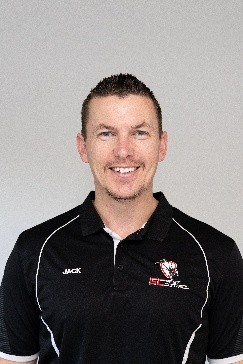
JACK DIXON – OWNER, GC PEST CONTROL
Jack is the founder and owner of GC Pest Control, which he started in 2014 and has grown to a 23-person team servicing South-East Queensland. Starting out as a solo operator, Jack now spends much of his focus on driving innovation through AI, automation, and scalable systems that enhance team performance and customer experience.
With over 1,200 five-star Google reviews, GC Pest Control has built a strong reputation for professional service, quality workmanship, and a genuine focus on team morale and customer care. Jack believes in hiring the right people and supporting them with ongoing training and clear pathways for internal promotion.
He leads by example by setting a high standard for the industry through strong business practices, well-presented vehicles, and a team that takes pride in their work. Jack is passionate about showing what’s possible when you combine professionalism with a people-first approach.
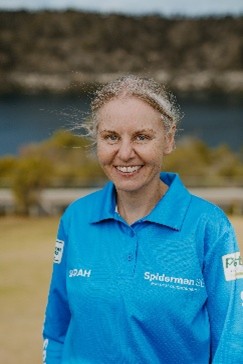
SARAH CUTTING – GENERAL MANAGER, SPIDERMAN SE ECO PEST MANAGEMENT
Sarah Cutting is the General Manager of Spiderman SE Eco Pest Management, a family-run business based in Mount Gambier. With qualifications in pest management, beekeeping, and business administration, she’s helped grow Spiderman SE from a backyard startup into a regionally recognised provider known for ethical service, practical systems, and community engagement. Sarah also runs a sister business, Swarm SE Eco Bee Management, focused on pollinator protection. She’s an active industry contributor through AEPMA and AWPMA, known for her advocacy, leadership, and down-to-earth approach to doing business in the real world.
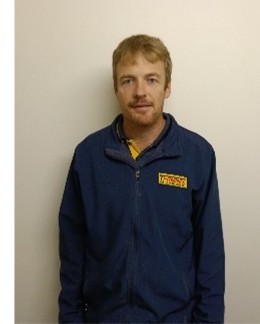
TOM CARTER – OWNER, TERMINIX PEST & WEED CONTROL
Tom owns and operates Terminix Pest and Weed Control. Based in country South Australia, the business has been owned and operated by the Carter family since 1974, with Tom now being the 3rd generation to lead the company.
Toms Journey in the Pest Control Industry started early, initially helping during school holidays during his early teenage years. This then developed into joining the family business as a full-time employee from 2006 and taking over the management of the business in 2019.
During this time Tom has gained his general pest and timber pest licence, as well as completing a diploma of management.
Having grown up in the Pest Management industry, Tom has a keen interest in how the industry has evolved, from where it has come from, to what Pest Management looks like into the future. As he believes Pest Management has been an underappreciated and under recognised industry
ABSTRACT View more...
The pest management industry faces growing demand and evolving customer expectations - yet attracting and keeping skilled workers is a complex challenge that is likely to affect many employers in the pest industry. Understanding the art of attracting and retaining a skilled workforce is crucial in today's dynamic business landscape. This session will discuss why talent is important, how much of a kicker businesses get from top talent and how you can build a resliient, future-ready workforce that drive service excellence and business growth.
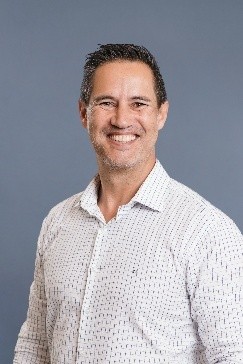
ANTHONY CHAN – EXECUTIVE DIRECTOR, INDUSTRY ENGAGEMENT - BUILDSKILLS AUSTRALLIA
As Executive Director, Industry Engagement, Anthony leverages more than 20 years of leadership within the Vocational, Education and Training (VET) sector, including significant experience in Registered Training Organisations (RTOs), Group Training Organisations (GTOs), overseeing employment programs, and the delivery of apprenticeship services. His deep understanding of workforce needs across industries such as building and construction, engineering, and transport and logistics, underpins his commitment to collaborative solutions. Anthony leads a talented team of industry engagement specialists, working hand-in-hand with the construction, property, and water industries to address their critical workforce challenges. He is passionate about the power of partnerships to build a highly skilled Australian workforce ready for the evolving world of work.
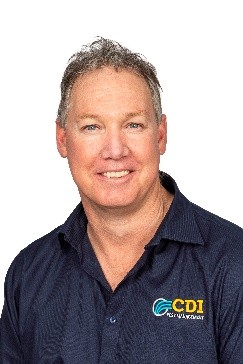
MARSHALL BLACKLOCK – CEO, CDI PEST MANAGEMENT
Marshall Blacklock is the Founder and CEO of CDI Pest Management, with over 28 years of experience in the pest control industry. Since establishing CDI in 2005, he has focused on delivering responsive, high-quality service backed by simple, scalable systems and a commitment to doing the ordinary exceptionally well.
A strong advocate for sustainability, Marshall champions Integrated Pest Management (IPM) and low-toxicity treatments, and has led initiatives like the Rapid Response Large Area Fire Ant Treatment. Under his leadership, CDI holds third-party accredited ISO 9001 and HACCP certifications, ensuring consistent quality and accountability.
Marshall is deeply engaged in the industry and community—mentoring other pest businesses, hosting local training events, and supporting not-for-profits. He leads the national Careers in Pest program with AEPMA and was named the 2024 Australian Pest Manager of the Year.
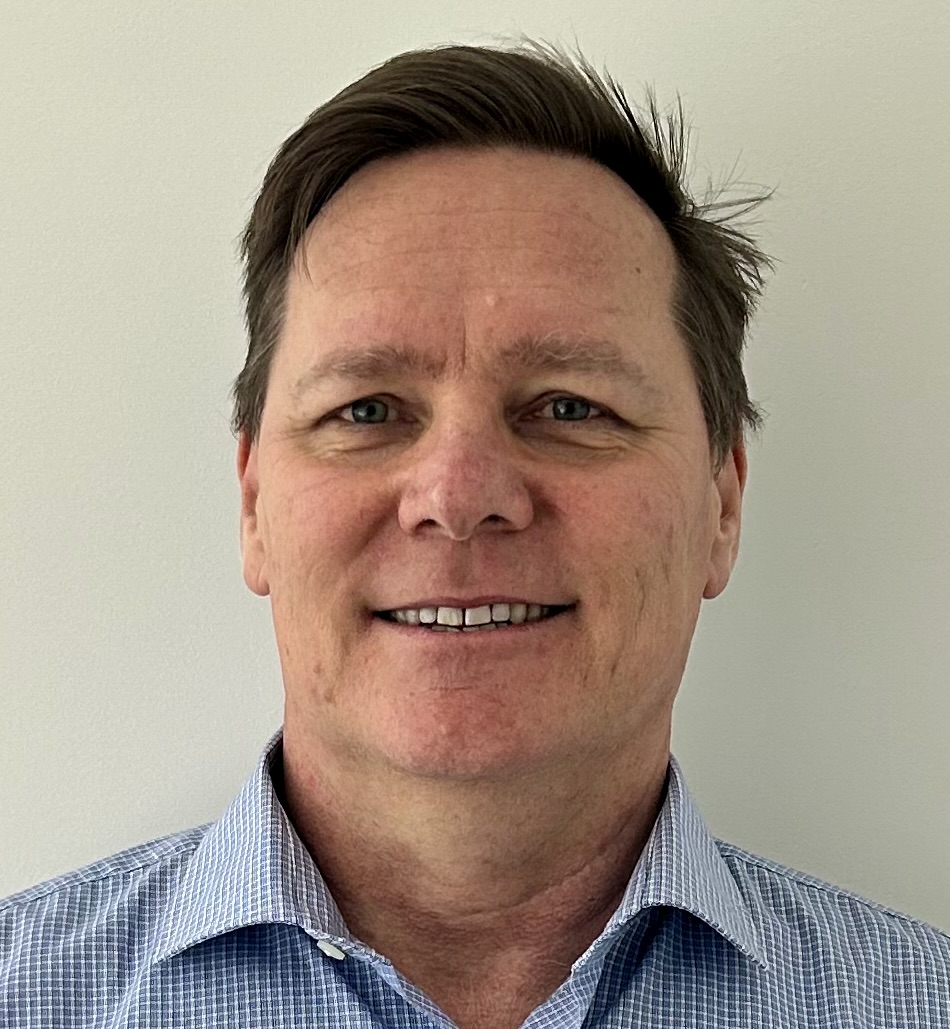
PAUL MUENCHOW – BUILDSKILLS AUSTRALLIA
Paul joined BuildSkills Australia, the national Jobs and Skills Council for the built environment in March 2025. Paul is a Vocational Education and Training, (VET) professional with a strong track record in industry engagement, stakeholder management, workforce and policy development. Paul’s experience includes over a decade in the WA State Government, focused on training product development and VET reform. His previous work in an Industry Training Council and for a Registered Training Organisation has provided him with a working knowledge of VET and a total of 20 years in the sector. He is passionate about strengthening Australia’s workforce capability through effective training and reform, and thrives in roles that require strategic thinking, relationship-building, and collaboration.
ABSTRACT View more...
This practical workshop is designed to help pest management businesses attract customers, build trust, and stay competitive in a changing market. Learn time-saving strategies, adapt your marketing techniques, leverage social media, create engaging content, and discover when and how to use ChatGPT in your marketing efforts to grow your business.